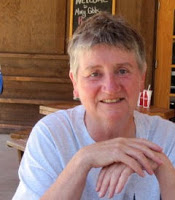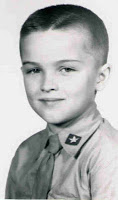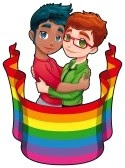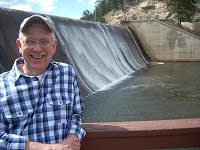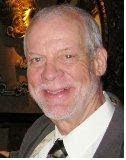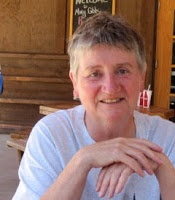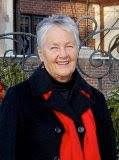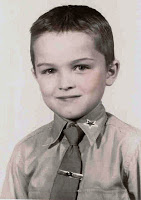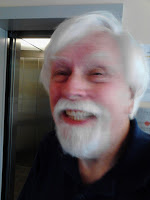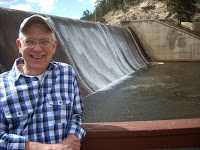“I
quit smoking when I was in college”, I
say, righteously; but that is a huge distortion of the truth!
quit smoking when I was in college”, I
say, righteously; but that is a huge distortion of the truth!
It’s
not exactly a lie. I have probably not smoked more than ten cigarettes since
the late 1950’s. But I didn’t quit in the sense of the huge conscious
effort of concentrated willpower the word implies. I just kind of drifted away
from it and never really missed it; rather in the same way I had drifted into
it. It was attractive, for a while, in the way of all forbidden things,
especially to the young. We smuggled ill-gotten packs of cigarettes onto the
school bus, puffing away at them huddled on the back seat while the driver
turned a blind eye. He chain-smoked so why should he care if we took a few
inexpert drags?
not exactly a lie. I have probably not smoked more than ten cigarettes since
the late 1950’s. But I didn’t quit in the sense of the huge conscious
effort of concentrated willpower the word implies. I just kind of drifted away
from it and never really missed it; rather in the same way I had drifted into
it. It was attractive, for a while, in the way of all forbidden things,
especially to the young. We smuggled ill-gotten packs of cigarettes onto the
school bus, puffing away at them huddled on the back seat while the driver
turned a blind eye. He chain-smoked so why should he care if we took a few
inexpert drags?
I
didn’t quite get the attraction, but of course did not say so. There’s a limit to how much of an odd-ball one
is willing to become, and holding a cigarette between my fingers for a few
seconds every now and then was a cheap price to pay for belonging: not being an
outcast. (Being the child of a local teacher offers many challenges.) Nobody seemed to notice whether I ever
actually placed the cigarette between my lips, much less inhaled. Life was
easy.
didn’t quite get the attraction, but of course did not say so. There’s a limit to how much of an odd-ball one
is willing to become, and holding a cigarette between my fingers for a few
seconds every now and then was a cheap price to pay for belonging: not being an
outcast. (Being the child of a local teacher offers many challenges.) Nobody seemed to notice whether I ever
actually placed the cigarette between my lips, much less inhaled. Life was
easy.
In
college, at any social gathering, I always had a drink in my hand. So did my
fellow party-goers. Most of them also held a smoldering cigarette. But the
drink was my membership card, so few, if any, noticed the lack of burning
embers.
college, at any social gathering, I always had a drink in my hand. So did my
fellow party-goers. Most of them also held a smoldering cigarette. But the
drink was my membership card, so few, if any, noticed the lack of burning
embers.
A
few years later, at a party with several twenty-something co-workers, my husband
and I both had the obligatory drink-in-the-hand when the joint came by. We both
passed it on, untouched by human lips; untouched by ours, anyway. We both knew
that we had enough of a challenge controlling the attractions of alcohol and
had no need of another.
few years later, at a party with several twenty-something co-workers, my husband
and I both had the obligatory drink-in-the-hand when the joint came by. We both
passed it on, untouched by human lips; untouched by ours, anyway. We both knew
that we had enough of a challenge controlling the attractions of alcohol and
had no need of another.
So,
in a very strange way, booze has saved me.
in a very strange way, booze has saved me.
But
the attitude of the medical profession towards drinking and smoking which I
find rather strange.
the attitude of the medical profession towards drinking and smoking which I
find rather strange.
“Yes”,
I acknowledge, “I probably drink more than is good for me.”
I acknowledge, “I probably drink more than is good for me.”
“Do
you smoke?” is the inevitable response.
you smoke?” is the inevitable response.
I
think if I said, “There’s a huge pink elephant in the corner of your office,” the
reply would probably be, “How many packs do you average a day?’”
think if I said, “There’s a huge pink elephant in the corner of your office,” the
reply would probably be, “How many packs do you average a day?’”
© August 2016
About the Author
I was born and
raised in England. After graduation from college there, I moved to the U.S.
and, having discovered Colorado, never left. I have lived in the Denver-Boulder
area since 1965, working for 30-years at IBM. I married, raised four
stepchildren, then got divorced after finally, in my forties, accepting myself
as a lesbian. I have been with my wonderful partner Betsy for thirty-years.
We have been married since 2013.
raised in England. After graduation from college there, I moved to the U.S.
and, having discovered Colorado, never left. I have lived in the Denver-Boulder
area since 1965, working for 30-years at IBM. I married, raised four
stepchildren, then got divorced after finally, in my forties, accepting myself
as a lesbian. I have been with my wonderful partner Betsy for thirty-years.
We have been married since 2013.
